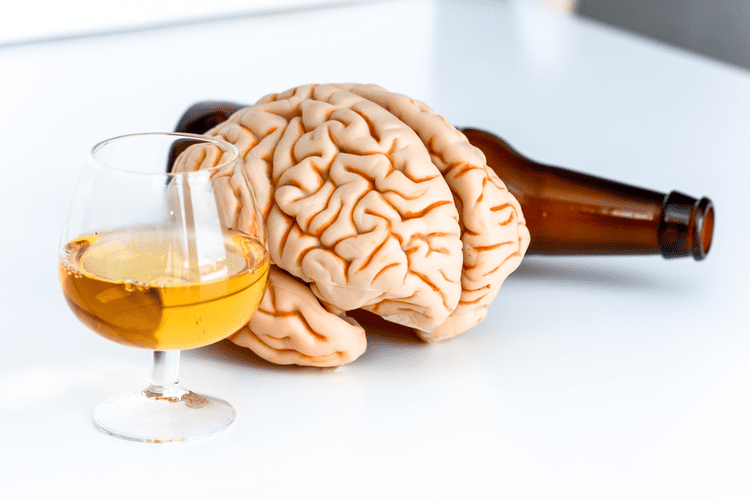Find people, places, and experiences that honor these feelings and allow you to lead a life that aspires to that ideal. It’s important to give yourself the grace to realize that you’re learning as you go. The habit of winding down from a long week with a glass of wine or binge drinking on the weekend as a way to block out the stresses of the world may seem like common ways people escape. However, a better approach is tackling stressors head-on and finding a healthy way to cope that permanently adds value and fulfillment to our life. In addition to the individual trauma each of us carries, we are all experiencing the collective trauma of the time we live in, which can make it hard to find a healthy coping mechanism that works for us. Finding a way to feel better as soon as possible is the road most often taken, and this usually involves alcohol.
- Heavy alcoholism use or borderline alcoholism increases the risk of developing alcohol use disorder (AUD).
- It can also impact your personal relationships with your spouse, children, family, and friends.
- When we practice mindfulness, we’re encouraging our brains to form new, resilient neural pathways.
- We observed that individuals reporting greater tendencies to drink to cope with negative affect drank more when under stress if they also lacked other adaptive coping skills, compared to individuals with greater levels of adaptive coping.
Smoking as a Negative Coping Mechanism for Stress
In line with this suggestion, various types of skills training approaches have been used as treatment for alcohol use disorders (Larimer & Cronce, 2007; Longabaugh & Morgenstern, 1999; Morgenstern & Longabaugh, 2000; Murphy, et al., 2001). These focus on developing skills for acutely coping with urges to drink and other situations that pose an immediate high risk for relapse. Therapists provide a menu of both anticipatory and immediate coping skills (cognitive or behavioral) which the client practices during role-plays or while imagining being in the situation. The model for teaching situation-specific skills is that practicing alternative ways to handle immediate risk will allow more rapid and effective responses when in real-world high-risk situations so as to avert relapse. Thus, one approach focuses on lifestyle skills whether or not a relapse trigger is present, and the other focuses on relapse triggers per se (Rohsenow https://ecosoberhouse.com/article/how-to-stop-using-alcohol-as-a-coping-mechanism/ et al., 2005).

Improve Your Life with Reframe
Connect with an organization such as Alcoholics Anonymous or talk to your healthcare provider. “Just know that you can reach out and find people who are ready to offer whatever support you need,” says Graham. Participants were first asked to describe what they did in general to maintain their sobriety in the past __ months (ratings of open-ended questions not used in this study). Next, closed-ended questions listed 21 strategies in plain language (see Table 2) and patients were asked “In general, as a way to maintain sobriety in the last __ months, how often did you…”, using the same response ratings as for the USS. Joanna Rog, a twenty-two-year-old from London, spoke to the charity about her use of alcohol as a coping mechanism. Elaine Hindal, chief executive of Drinkaware, has explained why more people may feel the urge to drink during this time of year.
- Unfortunately, alcohol is a coping mechanism, the temporary benefits of which are often outweighed by the long-term negative effects on health and relationships, poor decision-making under the influence, as well as increased dependency.
- While it may provide temporary relief or numbness, the aftereffects often worsen mood swings and emotional pain.
- This also suggests possible changes in brain glucocorticoid pathways in humans that may increase risk of hazardous drinking.
Why People Drink Alcohol as a Coping Mechanism
Physical methods include diaphragmatic breathing and progressive muscle relaxation, addressing the bodily symptoms of stress. Mental CBT coping skills include cognitive restructuring (reframing thoughts), behavioral activation, and setting specific goals to structure your day, all of which give us more control over our life before stressful circumstances arise. What’s the difference between problematic coping strategies and ones that can really improve our life? And how does drinking fit into the picture when it comes to using alcohol to cope? Let’s explore these topics and talk about some coping mechanisms for alcoholics that can serve as safer alternatives. Emotional drinking can seem like a quick fix at first glance, but it can be a recipe for long-term problems.

Orlando Treatment Solutions
Current alcohol abuse and dependence were determined at baseline using the criteria of the Structured Clinical Interview for DSM-IV – Patient Version (SCID-P; First et al., 1995), conducted by a trained, university-employed research therapist. Physician examination ruled out people with active psychosis or brain impairment, as well as physical conditions contraindicated for the medication. We offer traditional treatment approaches including addiction therapy and cognitive behavioral therapy, However, our offerings go beyond traditional treatment to help men rebuild every aspect of their lives. Some of these services include holistic therapies, individual and group counseling, anger management, and family counseling. Breaking free from the grip of alcohol often requires more than willpower alone.

Data Analytic Plan
Work-related stress is a significant portion of the pressure and stress that men deal with. There are many types of support, including different types of cessation therapies, medications, and support groups. Working with amphetamine addiction treatment a therapist in a safe, nonjudgmental space might help you uncover why you feel you need to drink. Everyone’s connection to alcohol is different, and there’s no one-size-fits-all approach to address that relationship. If you’ve heard the term “emotional eating,” then you may be familiar with the idea of consuming comfort foods to cope and take the edge off.
